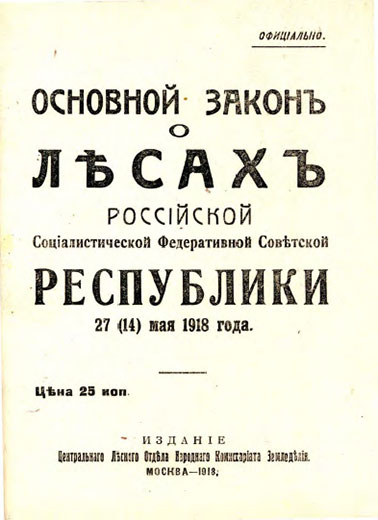
We kindly inform you that, as long as the subject affiliation of our 300.000+ articles is in progress, you might get unsufficient or no results on your third level or second level search. In this case, please broaden your search criteria.

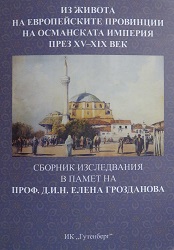
In mankind history all nations had discovered a variety of forms for manifestation of their outlooks and religious beliefs, for the preservation of the created by them culture and maintaining of their cultural memory. Heralds of the cultural and historical memory of every nation and tradition community are the created by them poetic stringed instrument are an important aspect of the religious customs of the Alevi-Bektashi community in Bulgaria, in the regions where it is localized. Apart from being a part of the religious custom, this has been transformed in a form of manifestation of this community and preservation of its identity. Verses with mystical-religious content, called nefesi, divans, ilahi, and performed with an accompaniment of a stringed musical instrument (saz) of their religious and domestic ceremonies, they reflect to the greatest extent the religious doctrine, beliefs, outlook and ethical system of this community; are an important source of the exploration of its history, religious and social tradition, of the specific character of the followed interpretation of the Islam. For ages, these verses have been handed over in a verbal manner and recorded by the adepts of that community. Among the most performed with an accompaniment of saz by the Alevi-Bektashi in the Ludogorie region are the nefesi of the most popularrepresentatives of that tradition - Pir Sultan Abdal, Shah Khatai, Kul Himmet, Kul Himmet Ustazim, Kul Hatmim, Kul Huseyin and etc. Rewritten and read are verses of Yunus Emre as well, his followers, using the same pseudonyms, and etc. Here were born, too, local creators of the mystic-religious verses in the casual style and music to them that Alevi-Bektashi perform, the most ardent of which is Muhyddin Abdal. Among the authors of nefesi, recorded by the Alevi-Bektashi in the Ludogorie region are also Abdal Musa, Kaygusuz, Shemsi Boba and etc. The performance of nefesi and ilahi at the meetings of the Alevi-Bektashi community in the Ludogorie region, for ages has played a social part, too, and it has a uniting function between the members of the jam. The moving and deep suggestions, expressed with these verses, inspire deem emotional awareness on the audience. They appear priceless heralds of the culture of the community. The article discusses some issues, uncovering that aspect of the Alevi-Bektashi culture in the Ludogorie region, for example, the place of the jam in the preservation of the poetic-musical memmory; the authors, whose nefesi were recorded by its adepts; the subjects covered by the nefesi. The connection of that tradition with the music was emphasized as well and it was closely connected with the music tradition of the Turk Central Asia, and on the role of the zakir for the handing over of the tradition to the generations. It was asserted, too, that these verses were a universal system of values, which the Alevi-Bektashi had been following for ages.
More...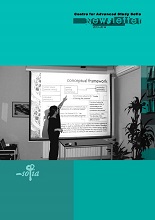
Articles, pictures and interviews can be reprinted only with the consent of Centre for Advanced Study Sofia (CAS - Sofia). Any citations should be duly acknowledged.
More...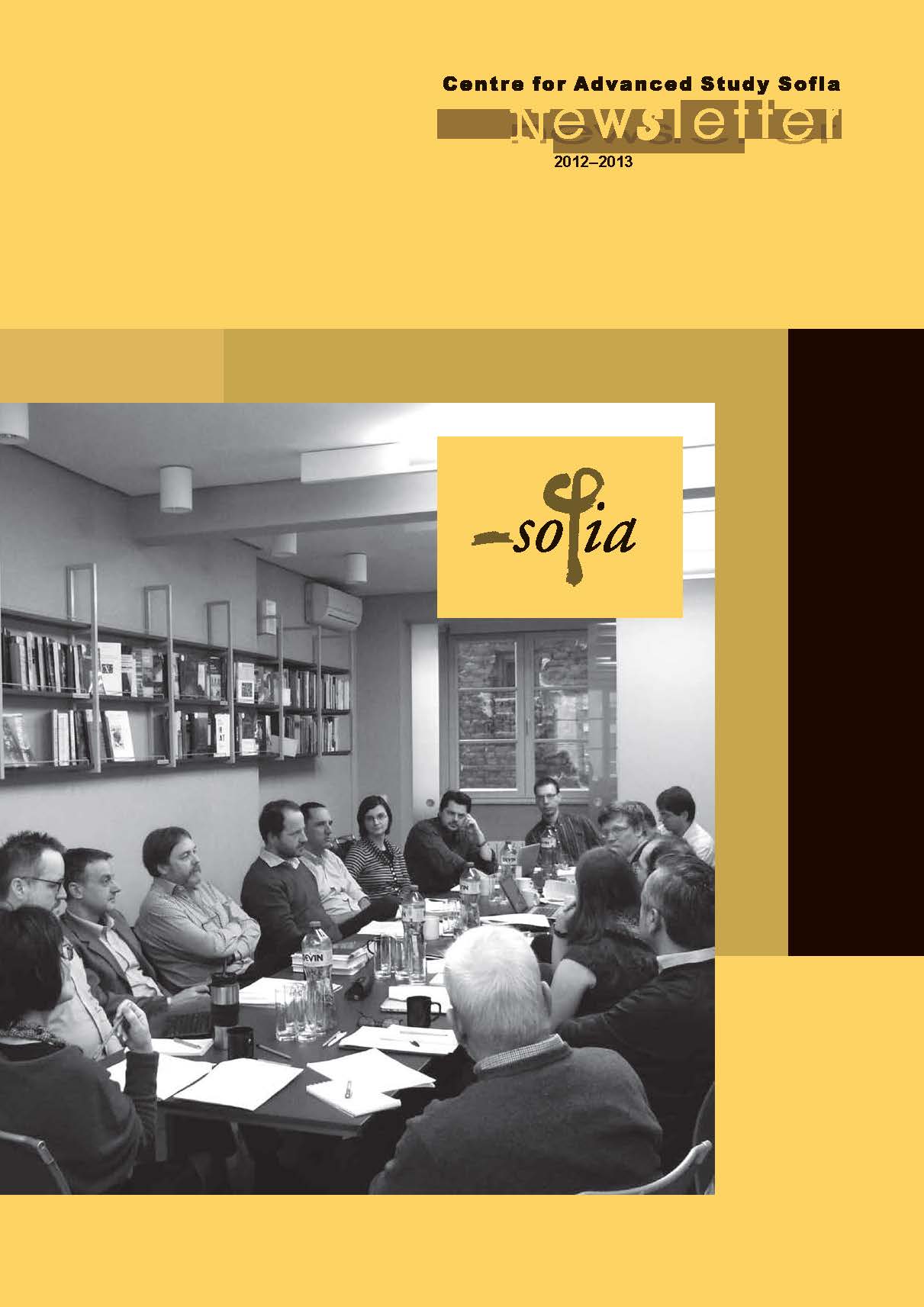
Articles, pictures and interviews can be reprinted only with the consent of Centre for Advanced Study Sofia (CAS - Sofia). Any citations should be duly acknowledged.
More...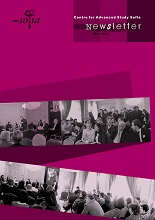
Articles, pictures and interviews can be reprinted only with the consent of Centre for Advanced Study Sofia (CAS - Sofia). Any citations should be duly acknowledged.
More...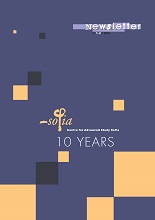
Articles, pictures and interviews can be reprinted only with the consent of Centre for Advanced Study Sofia (CAS - Sofia). Any citations should be duly acknowledged.
More...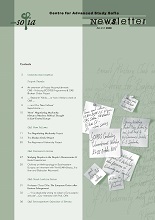
Articles, pictures and interviews can be reprinted only with the consent of Centre for Advanced Study Sofia (CAS - Sofia). Any citations should be duly acknowledged.
More...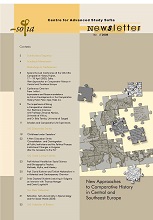
Articles, pictures and interviews can be reprinted only with the consent of Centre for Advanced Study Sofia (CAS - Sofia). Any citations should be duly acknowledged.
More...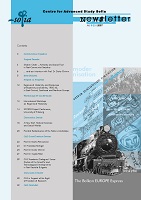
Articles, pictures and interviews can be reprinted only with the consent of Centre for Advanced Study Sofia (CAS - Sofia). Any citations should be duly acknowledged.
More...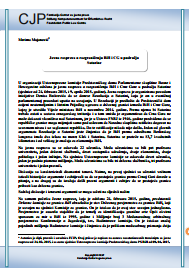
U organizaciji Ustavnopravne komisije Predstavničkog doma Parlamentarne skupštine Bosne i Hercegovine održana je javna rasprava o razgraničenju BiH i Crne Gore u području Sutorine (sjednice od 24. februara 2015. i 9. aprila 2015. godine). Javna rasprava je organizirana povodom inicijative Denisa Bećirevića da se donese Rezolucija o Sutorini, koju je on u zvaničnoj parlamentarnoj proceduri uputio na usvajanje. U Rezoluciji je predložio da Predstavnički dom ocijeni neutemeljenim i štetnim Prijedlog ugovora o državnoj granici između BiH i Crne Gore, kojeg je utvrdilo Vijeće ministara BiH u novembru 2014. godine. Prema njemu bi Sutorina trebala ostati u sastavu crnogorskog teritorija i u tom smislu je argumentirao da Crna Gora ne može dokazati vlasništvo nad Sutorinom, jer je u Ustavu FNRJ iz 1946. godine predviđeno da se republičke granice mogu mijenjati samo pod uslovom da Narodna skupština ratificira dogovor na saveznom nivou i uz saglasnost republika. Do te ratifikacije nikada nije došlo. Jedan od glavnih argumenata Rezolucije o Sutorini jeste činjenica da je BiH prema odredbama Berlinskog kongresa imala dva izlaza na more: Klek i Sutorinu. Sutorina se proteže na 83,7 kvadratnih kilometara i od velikog je značaja za ekonomiju BiH.
More...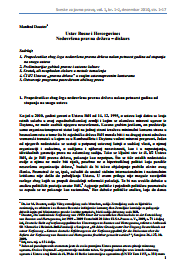
Ko još u 2010. godini govori o Ustavu BiH od 14. 12. 1995, o ustavu koji datira sa kraja ratnih sukoba u ovoj zapadnobalkanskoj zemlji i kojim se okončava mirovni ugovor iz Daytona, ne može zaobići njegovu nesavršenost. Kazano grubim jezikom, on predstavlja samo organizacionopravni statut koji na jednoj strani izražava minimalni konsens strana u bosnaskom ratu o tome šta bi zajednička država BiH morala biti i na drugoj strani odražava vremenski trenutak u kojem su u Rambouilletu i Daytonu vođeni mirovni pregovori. Jedan od njegovih nedostataka se sastoji u potpunoj ustavnoj šutnji o sudskoj vlasti, o njenoj organizaciji i zadacima, o sudijama i njihovoj nezavisnosti, kao i u nepostojanju, idividualnih garancija prava na zakonskog sudiju. Tako se ključni stav iz čl. I/2 Ustava BiH, da je BiH pravna država, pokazuje kao nepotpun. Što se tiče ostalih nedostataka ovdje o njima ne može biti riječi, posebno ne o hipertrofičnoj politici koja parališe nesavršenu organizaciju države, budući da bi takvo objašnjenje probilo okvire ovog članka. Posmatrač će se, ipak, začuditi da unatoč stalnim internacionalnim i nacionalnim kritikama nije došlo do poboljšanja Ustava. U ovom prilogu nije moguće rasvijetliti razloge zbog kojih su propali dosadašnji reformski pokušaji. To bi nas uvuklo doboko u analizu političkih pozicija unutar BiH. Agiranje politike i pojedinih političara posmatraču sa zapada se ne pokazuje kao racionalno. Bez duboke političke analize, koja do danas očigledno nije provedena, neće biti moguće rekonstruirati stvarnu pozadinu, jedva prihvatljivog ustavnopravnog držanja pojedinih protagonista koji cijelo vrijeme slijede politiku koja je definirana prema etničkoj liniji. Ako se, ipak, svim mogućim argumentima – čak i potpuno nerazumnim – po svaku cijenu održava ovaj ustavnopravni statusu, takva odbrana status quoa može se jedino objasniti egoizmom vlasti određenih etničkih grupa. Ustav koji organizira krov društva nije naprosto statut kojim se ustanovljava jedno udruženje i uspostavljaju njegovi organi. On ne zrači samo prema državi i prema politici, nego utiče i na život pojedinca. On je prema tome suviše važan da bi se prepustio egoističnim grupama vlasti, ma koje boje one bile. Čini se, ipak, da je upravo to u BiH slučaj. Ovo je moguće samo zbog toga što su stanovnici ove ustavnopravne kuće uočljivo neizainteresirani za samo stanje u kući. Nema društvenog dikursa o ustavnim pitanjima koja se tiču ustavnog identiteta. Nije sasvim tačno da društveni interes ima svoju osnovu samo u činjenici da je Ustav iz 1995. zaključen bez učešća samog naroda. Jer, i ustavi drugih evropskih država su donešeni bez neposrednog učešća naroda, a da nakon toga državni narod nije u pogledu ključnih društvenih odluka upao u takvu nezainteresiranost, tačnije u apatiju, kako je to slučaj u BiH.
More...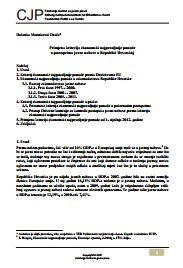
In this article the author gives insight of legislative regulation and analysis of “most economically advantageous tender” application in public procurement procedures in the Republic of Croatia. The article points out on main obstacles for application of this practice, considering that “most economically advantageous tender” is almost negligible criterion in public procurement procedures. Frequent changes of public procurement legislation did not affect increasing number of procedures in which, along lowest price, other criterion were represented, which could achieve “value for money” objective. Restrictive approach of the State Commission for Supervision of Public Procurement Procedure in application of this criterion, which demands from contracting authority that literally every criterion value, even the evaluation for qualitative criterions, could be recalculated in monetary amount, additionally discourages contracting authorities to conduct procedures applying “most economically advantageous tender” criterion. New Public Procurement Act, which will be applied from 1st January 2012, author sees as a chance for change in approach, for which additional special education is necessary for all participants in that procedure.
More...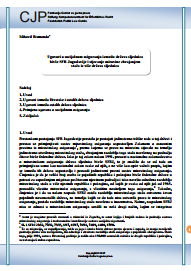
Following the dissolution of Yugoslavia, its successor states have regulated their pension insurance relations by bilateral social security agreements. Such agreements regulate the relations between two countries; therefore, a problem of aggregation of the insurance periods acquired in third–country–successor states occurred, which periods are requisite for granting of the pension entitlement. Therefore, the author suggests the application of the Convention ILO no. 48 Concerning the Establishment of an International Scheme for the Maintenance of rights under Invalidity, Old–age and Widows’ and Orphans’ Insurance, 1935, applicable to all successor–states of the former Yugoslavia.
More...
Fake News: A Roadmap explores the character, consequences, and challenges of fake news. The twists and turns that connect fake news to related buzzwords and themes including ‘post-truth’, ‘populism’, and ‘trust’, are far from straightforward. Fake News: A Roadmap is published by King’s Centre for Strategic Communications (KCSC) and the NATO Strategic Communications Centre of Excellence, in Riga, Latvia. Both organisations are committed to encouraging innovative thinking.
More...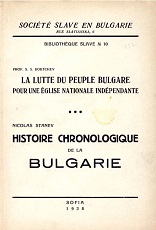
With an 16-pages introduction of the »Société Slave en Bulgarie« acting as editor of this small booklet under issue Nr 10 of its series »Bibliothèque Slave«
More...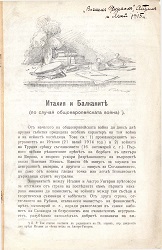
A print of the Military Journal, September 15, 1915, referring to Italy's policy on the Balkans.
More...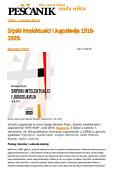
Kada sam, 1989. godine, prijavila doktorsku tezu o srpskim intelektualcima i njihovom odnosu prema jugoslovenskoj državi, u istorijskom vremenu koje pripada prvim decenijama XX veka, nisam mogla zamisliti da se bavim istorijom koja će me zapljusnuti kao cunami, koja će razrušiti, opustošiti i uništiti moju savremenost i temu mog istraživanja. Počeo je rat, a sa njime je počeo i moj lični i profesionalni pakao u koži istoričara i učesnika istorije. Kako uopšte pisati o stvaranju jugoslovenske države u trenutku njenog nepovratnog sloma, kako se izvući iz dva toka istorije koja se međusobno isključuju?
More...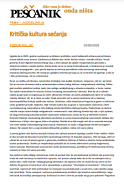
Izgleda da je 2005. godine suočavanje sa bliskom prošlošću novih balkanskih država pod pritiskom izvana dobilo nove tonove. Zaoštrena je debata oko ratnih zločina unutar i između država. Hrvati grčevito brane dignitet Domovinskog rata, a Srbi nastoje da ublaže neuporedivost genocida u Srebrenici ističući i ostale zločine. Domovinski rat se ne smije kriminalizovati, a Srebrenica je rezultat smišljene propagande – jesu parole kojima se umiruje povređeno vrelo ponosnog nacionalnog osećanja običnog čoveka. Ne manje je upadljiva retorika po kojoj su se svi branili od agresije, a ako je i bilo preterivanja, reč je o ekscesima.
More...
The presented disertation deals with selected essayists associated around the polish exile magazine "Kultura" published in maisons-laffitte in paris in the second half of the 20the century (1946-2000). its managing editor was Jerzy Giedroyc. the oeuvre of the closest magazine associates (so called "kultura group") is disscussed with regard to the aspects of the art of essay. research in this paper is limited to the so called first generation of the culture associates (1946-69). apart from the spiritus agens of the periodical - jerzy giedroyc, the analysis looks in detail at these personae from the closest magazine circle: witold gombrowicz, jerzy stempowski, konstantyn a. jeleński, gustaw herling-grudziński and józef czapski. essay as such goes beyond mere literary genre. at the basis of this texts of this nature lie more general attributes and essay can be placed among texts structured by strict logic and texts so called "litterary". as such, these are grasped in the sense of a statement inferred from several basic principles, whereas literary texts as those of which structure is based on digressions.
More...